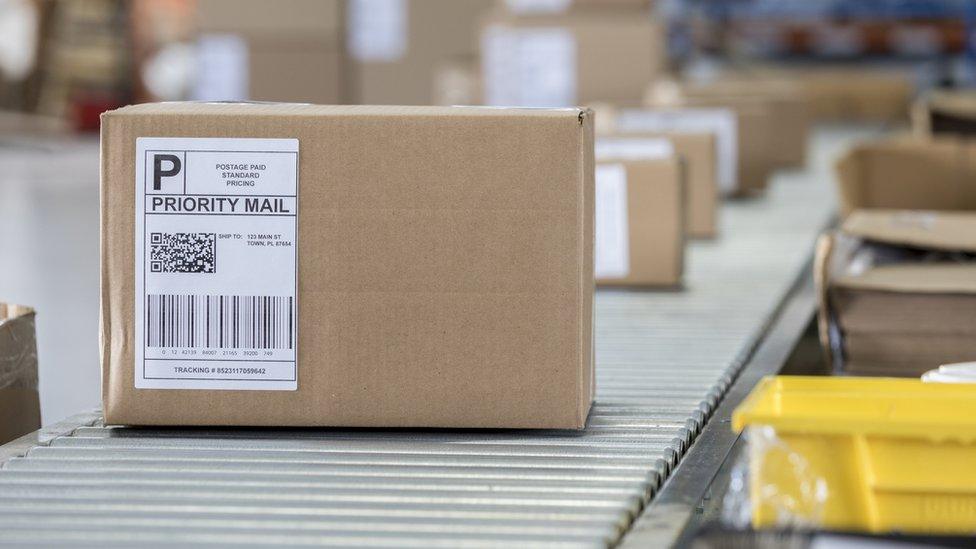Brexit: Movement Assistance Scheme costs £330,000 in 20 days
- Published
- comments
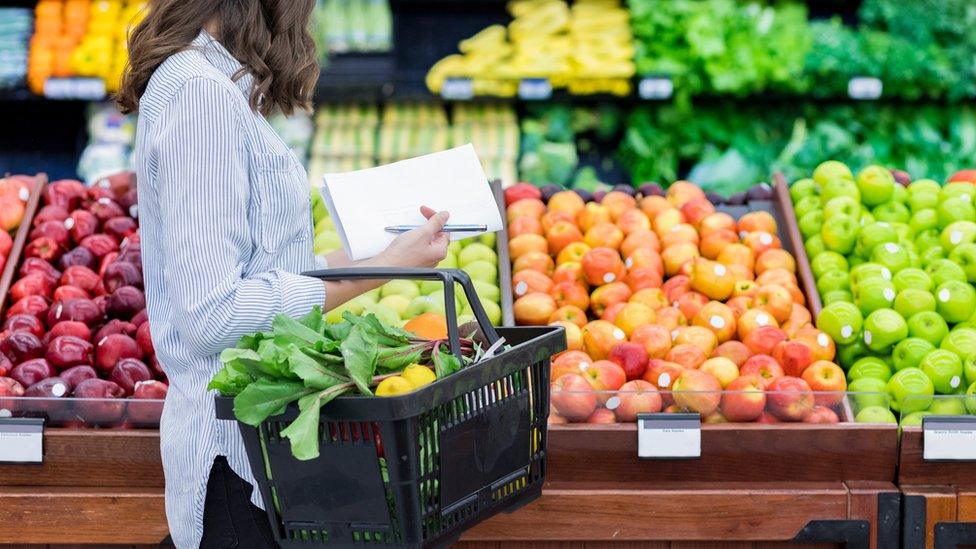
A government scheme to help businesses with the cost of moving food and plant products to Northern Ireland from GB has cost £330,000 in its first 20 days.
The Movement Assistance Scheme (MAS) covers the costs of certifications required for those products.
They are needed because Northern Ireland is still in the EU single market for goods.
A senior official told MPs that 84 businesses have signed up to use the MAS.
James Quinault, from the Department for Environment, Food and Rural Affairs, said that number was roughly what was expected.
He told the MPs that 2,134 food health certificates and 219 plant health certificates had been issued under the scheme up to Tuesday of this week.
"Because organisations invoice us monthly we haven't incurred any actual costs yet, but based on these numbers we think the cost so far has been £330,000," he said.
The number of certificates being issued under the scheme could increase dramatically in April when a grace period for supermarkets ends.
Currently supermarkets and other retailers are operating under a reduced certification regime.
Retailers say the grace period will need to be extended or replaced with a permanent easement or the system could become unworkable.
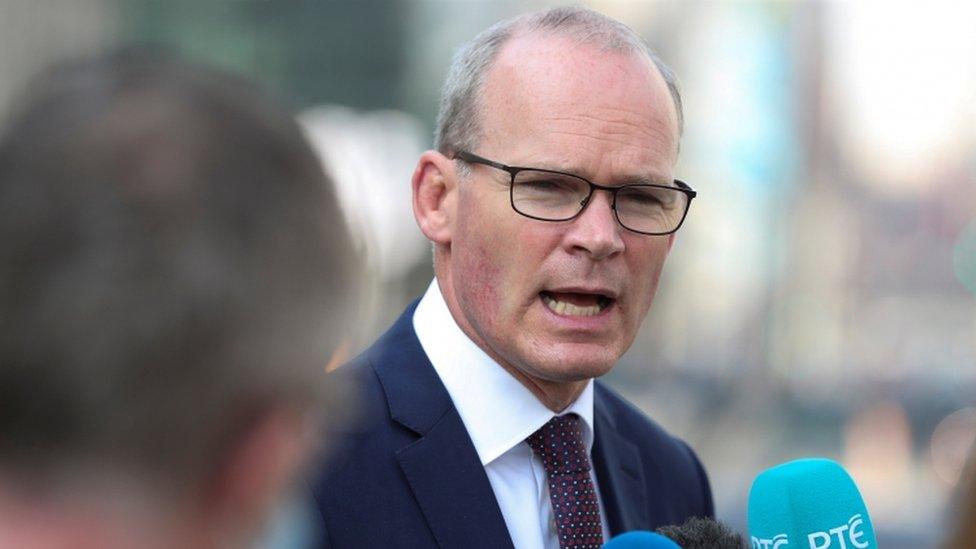
Simon Coveney said food supply problems were "part of the reality" of the UK leaving the EU
On Wednesday, the Republic of Ireland's foreign minister said that food supply problems into Northern Ireland from Great Britain were "clearly a Brexit issue".
Simon Coveney said the shortages were "part of the reality" of the UK leaving the EU.
"Let's not pretend Brexit doesn't force that kind of change," he said, speaking on ITV's Peston programme.
His comments were in response to NI Secretary Brandon Lewis, who said images of empty supermarket shelves had "nothing to do with the protocol".
Rather, Mr Lewis argued the disruption caused by coronavirus before Christmas was responsible for the shortages of some food products.
The Northern Ireland Protocol between the UK and the EU requires health certifications on animal-based food products entering NI from the rest of the UK.
Steel importers
Meanwhile , the chief executive of HM Revenue and Customs said a solution has been found to an issue that could have seen Northern Ireland steel importers facing a 25% tariff.
Jim Harra said: "I believe we have solutions in place for steel of whatever origin: UK, EU or non-EU.
"Importers can access a quota and therefore not have to pay the EU safeguard charge."
Mr Harra said official details would be issued soon and they have been in contact with individual importers.
Related topics
- Published12 January 2021
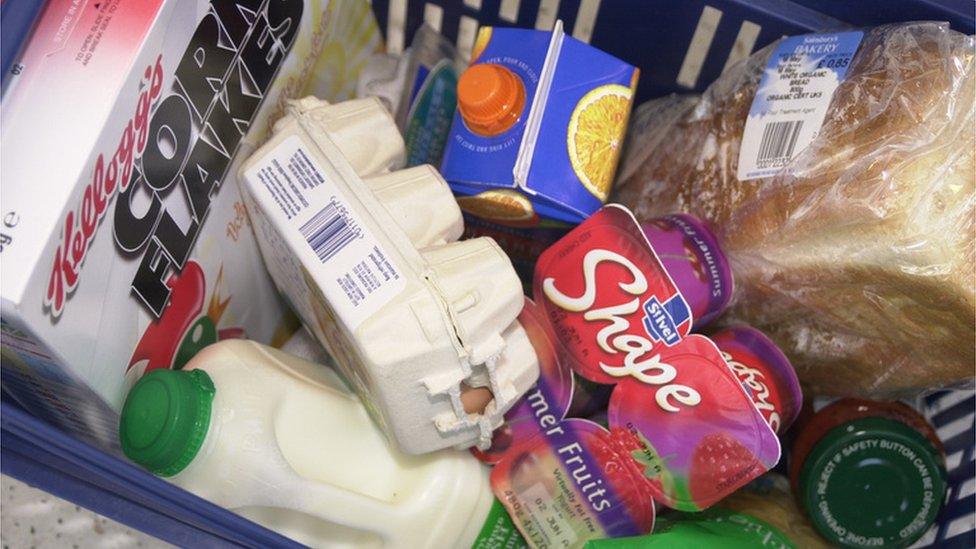
- Published23 December 2020
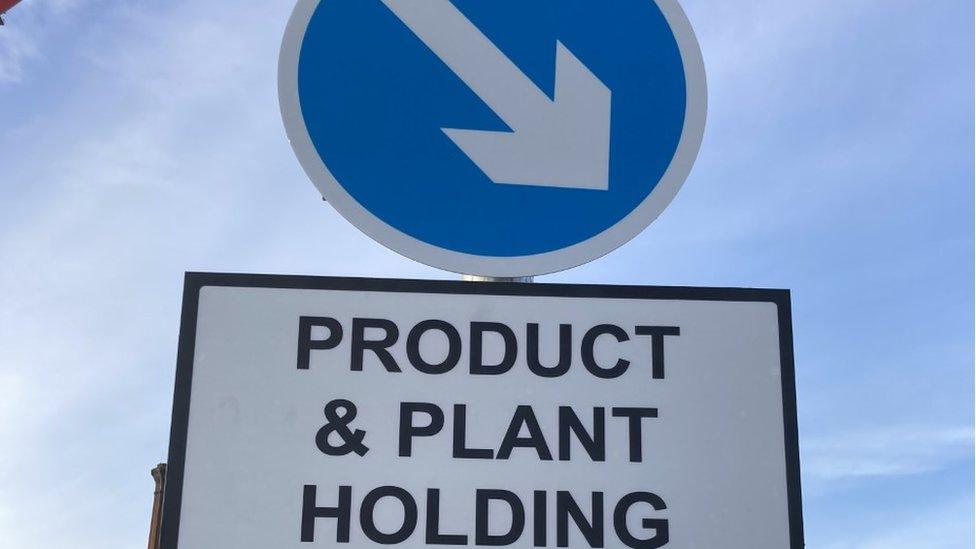
- Published15 January 2021
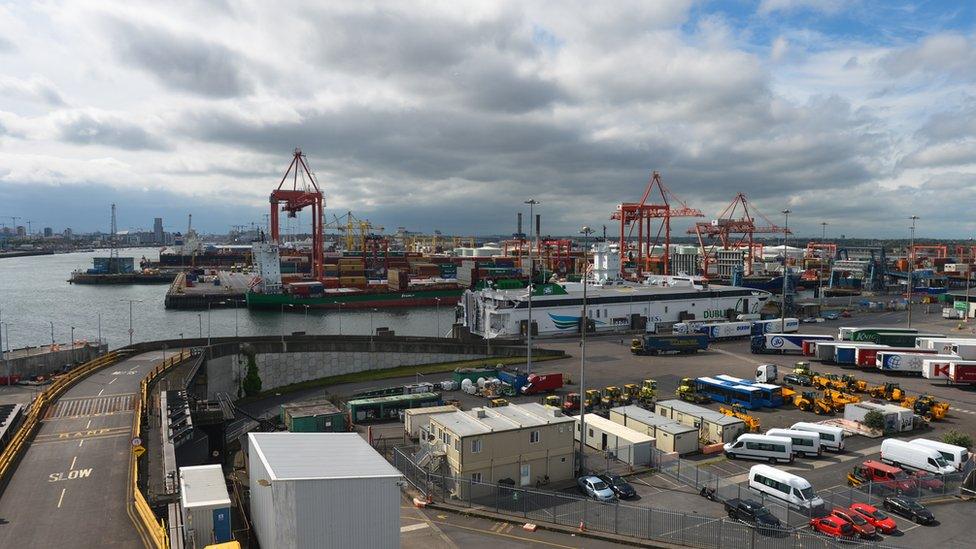
- Published20 January 2021
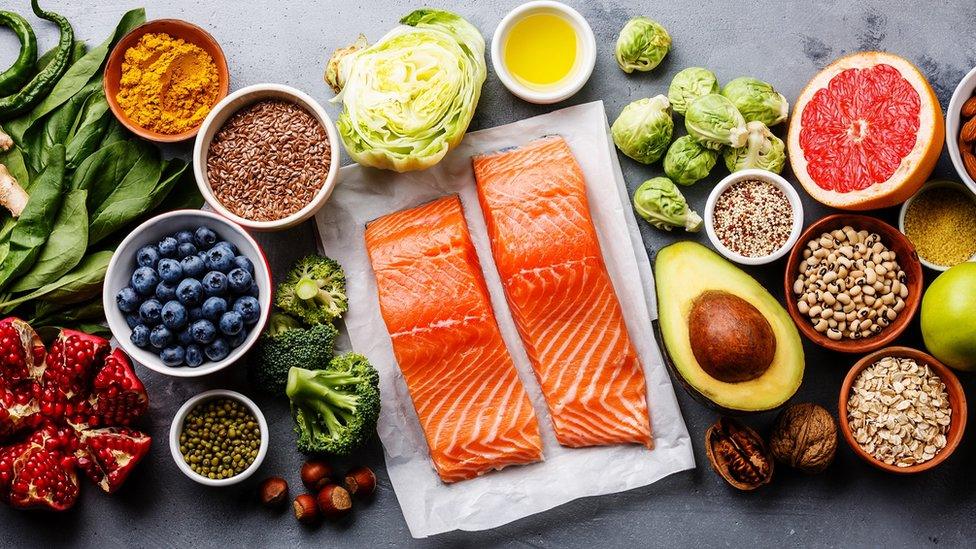
- Published17 January 2021
